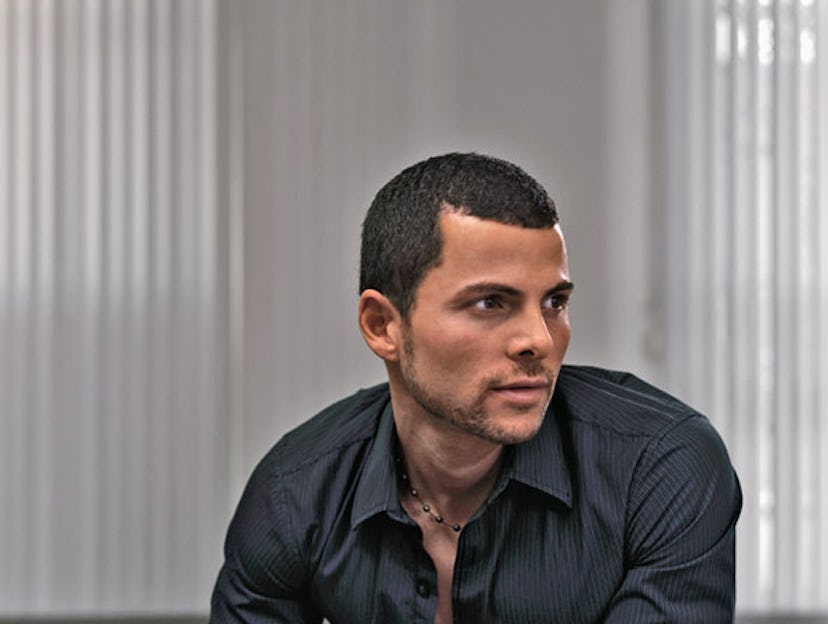Hot Tea

The first thing you notice upon entering the headquarters of Millennium Products, the maker of a trendy health-food drink called GT’s Organic Raw Kombucha, is the smell. It’s a sharp odor akin to cider vinegar—strong enough to prickle your nose—and it utterly permeates the 50,000-square-foot facility from which company founder G.T. Dave and his employees shipped more than a million bottles last year. One wonders how Dave himself must smell at day’s end; he drinks up to a gallon and a half of kombucha daily.
“I taste-test all the batches,” says Dave, who at 30 is gym-toned and sleek as an otter. “I get customers calling in and saying, ‘I’m drinking X bottles a day. Is that too much?’ I suggest everything in moderation, but then I tell them how much I drink and that it’s never turned on me.”
It’s hard to imagine a salesman advising customers to consume less of his product, but Dave’s testimonial for kombucha goes beyond mere salesmanship. Given 30 seconds to spiel on his company, he will inevitably mention his mother, Laraine, who was diagnosed with breast cancer in 1994 but rallied to a complete recovery because, she says, of kombucha’s ability to “turbo-boost” the immune system. Today, Mama Dave continues to make public appearances to tout kombucha’s health benefits.
Back in the mid-Nineties, kombucha was not widely available, but it’s hardly a new invention. Made by fermenting tea with a culture—in much the same way milk is cultured to produce yogurt—the drink has been regarded as a health tonic in China for more than 2,000 years. In recent decades samples of the culture, or “mother,” were swapped in America’s fringe health circles, and fans nurtured their own batches. Laraine Dave, a devotee of Eastern spirituality, and G.T.’s father, Michael, an attorney and CPA, first got their “mother” from friends who owned a Beverly Hills juice bar. “I drank it purely for vanity reasons,” recalls Laraine, citing the claims that kombucha improves skin quality and thickens the hair. G.T., then a teenager, was initially skeptical. “It wasn’t until my mother was diagnosed with breast cancer that I really started paying attention,” he says. “She’s still the reason why I do what I do.”
Convinced that kombucha had saved Laraine’s life, Dave, a Beverly Hills High School dropout, devoted himself to the potion full-time. In 1995 he started brewing small batches of the stuff in his parents’ kitchen and selling it to a local health-food store. In 1999 Whole Foods picked up his product, and in 2005 he sank his life savings into a larger bottling plant in L.A. (A psychic told him the building would bring him great success after he brought her a soil sample from the site.) These days Dave’s kombucha and Synergy drinks (kombucha flavored with fruit juice) are available in more than 1,000 outlets, and he’s building a house in Beverly Hills. He calls kombucha a “blessing.” Retailers agree. “The sales are so remarkable that the first time I saw [the numbers], I thought it was a mistake,” says Perry Abbenante, senior global grocery coordinator for Whole Foods.
The label of Dave’s drinks suggests that kombucha supports the immune and digestive systems, and fans also credit the drinks with everything from forestalling hunger to imparting a sense of spiritual calm. The medical establishment, however, isn’t completely convinced. “There have been no clinical trials,” points out Mary L Hardy, medical director of the Simms/Mann–UCLA Center for Integrative Oncology, but she does note that “most probiotic foods stimulate the immune system.”
But lack of clinical data hasn’t kept kombucha from becoming a Hollywood trend. In the past year the beverage has been photographed in Lindsay Lohan’s hand and plugged by Tina Fey on Late Show With David Letterman. (“It smells horrible,” she quipped, “but it tastes…horrible.”) The cast of Grey’s Anatomy has cases of Dave’s brew shipped to the set, and CAA partner Kevin Huvane sends it to clients. Dave has declined corporate buyout offers and still personally oversees the brewing of every batch. Kombucha, he insists, is extremely sensitive to the “energy” of its maker. “So until the day that I find a way to clone myself,” says Dave, “I don’t see a second factory happening.”